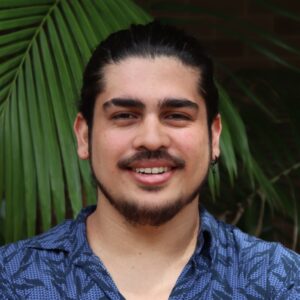
Associations between parental technoference and 24-hour movement behaviours guidelines for children under 5 in Chile
Abstract Overview
Background: Parental technoference (PT), defined as parental technology use during parent-child interactions, may impact children’s health and development due to a lack of attention and responsiveness. However, no study has explored associations between PT and the World Health Organization’s guidelines on physical activity (PA), sedentary screen time (ST), and sleep for children under five years (24-hour movement guidelines; 24HMBG).
Purpose: To explore the association between PT and adherence to the 24HMBG among children aged 1-4y in Chile.
Methods: This is a secondary analysis of a cross-sectional study conducted in Chile from May to September 2022. Caregivers of children aged 1-5y completed an online questionnaire about their weekly use of screen devices during playtime, bedtime, travel time, and walks with the child (as proxies for PT), and their child’s PA, ST and sleep. Data for children aged 1-4y were included in this analysis. PT was defined as frequent if it occurred at least more than half of the week. Logistic regression was employed to assess the association.
Results: 1214 caregivers (mean age 33y) provided complete data for this analysis. Fifteen percent of the children (mean age 2.5y) met the overall 24HMBG. Higher adherence was observed for sleep (68%) and PA (64%) compared to ST (35%). Ten percent of the children were frequently exposed to PT. Frequent PT was negatively associated with meeting the overall 24HMBG (OR=0.486; p=0.034) after adjusting for sociodemographic factors.
Conclusions: Toddlers and preschoolers with higher exposure to PT were less likely to meet the 24HMBG. Further research is needed to explore the impact of parent’s screen device use on children’s health and development.
Practical implications: Given the widespread use of technological devices in families, parents should prioritise engagement and responsiveness with their children to mitigate potential negative effects.
Funding: National Fund for the Promotion of Sports (FONDEPORTE, Chile).
Additional Authors
Name: Marcelo Toledo-Vargas
Affiliation: School of Health and Society and Early Start, Faculty of the Arts Social Sciences and Humanities, University of Wollongong, Wollongong, NSW, Australia; UFRO Activate Research Group, Universidad de La Frontera, Chile. 4780000
Presenting Author: yes
Name: Kar Hau Chong
Affiliation: School of Health and Society and Early Start, Faculty of the Arts Social Sciences and Humanities, University of Wollongong, Wollongong, NSW, Australia.
Presenting Author: no
Name: Nicolas Aguilar-Farias
Affiliation: Department of Physical Education, Sports and Recreation. Universidad de La Frontera, Chile. 4780000; UFRO Activate Research Group, Universidad de La Frontera, Chile. 4780000
Presenting Author: no

